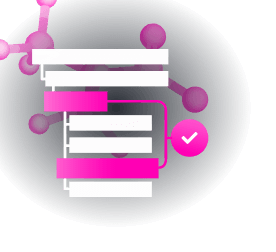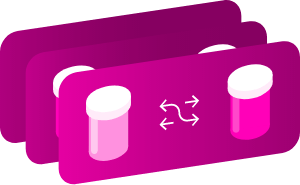Explore a selection of our essential drug information below, or:
Identification
- Generic Name
- Nonivamide
- DrugBank Accession Number
- DB11324
- Background
Nonivamide is found in herbs and spices. It is an alkaloid from the Capsicum species. The structures of Capsaicin and nonivamide differ only slightly with respect to the fatty acid moiety of the side chain (8-methyl nonenoic acid versus nonanoic acid) 15.
Nonivamide is a flavoring ingredient. Nonivamide is an organic compound and a capsaicinoid. It is an amide of pelargonic acid and vanillylamine. It is naturally found in chili peppers but manufactured to produce a synthetic form for various pharmacologic preparations 11.
This drug has been studied in combination with Nicarboxil in the treatment of lower back pain 12.
Nonivamide has also been studied for its anti-inflammatory properties, as well as in fat loss therapies and has demonstrated promising results 13, 8, 4, 2.
- Type
- Small Molecule
- Groups
- Investigational
- Structure
- Weight
- Average: 293.4012
Monoisotopic: 293.199093735 - Chemical Formula
- C17H27NO3
- Synonyms
- Hydroxymethoxybenzyl pelargonamide
- N-Nonanoyl vanillylamide
- N-Vanillylnonamide
- N-Vanillylpelargonamide
- Nonivamide
- Pelargonyl vanillylamide
- Pseudocapsaicin
- Vanillyl-N-nonylamide
- External IDs
- AH-23491X
- FEMA NO. 2787
- NSC-172795
Pharmacology
- Indication
Nonivamide is used as a topical analgesic and is also used as a flavoring ingredient 11, 2, 12.
 Reduce drug development failure ratesBuild, train, & validate machine-learning modelswith evidence-based and structured datasets.Build, train, & validate predictive machine-learning models with structured datasets.
Reduce drug development failure ratesBuild, train, & validate machine-learning modelswith evidence-based and structured datasets.Build, train, & validate predictive machine-learning models with structured datasets.- Associated Conditions
Indication Type Indication Combined Product Details Approval Level Age Group Patient Characteristics Dose Form Used in combination to treat Back pain lower back Combination Product in combination with: Benzyl nicotinate (DB15764), Levomenthol (DB00825), Glycol salicylate (DB11323) ••• ••• •••••• Used in combination to treat Back pain, acute Combination Product in combination with: Nicoboxil (DB12911) ••• ••• •••••••• Used in combination to treat Bruises Combination Product in combination with: Glycol salicylate (DB11323), Levomenthol (DB00825), Benzyl nicotinate (DB15764) ••• ••• •••••• Used in combination to treat Joint pain Combination Product in combination with: Levomenthol (DB00825), Glycol salicylate (DB11323), Benzyl nicotinate (DB15764) ••• ••• •••••• Used in combination to treat Joint pain Combination Product in combination with: Glycol salicylate (DB11323), Benzyl nicotinate (DB15764), Salicylamide (DB08797) ••• ••• •••••••• - Associated Therapies
- Contraindications & Blackbox Warnings
 Prevent Adverse Drug Events TodayTap into our Clinical API for life-saving information on contraindications & blackbox warnings, population restrictions, harmful risks, & more.Avoid life-threatening adverse drug events with our Clinical API
Prevent Adverse Drug Events TodayTap into our Clinical API for life-saving information on contraindications & blackbox warnings, population restrictions, harmful risks, & more.Avoid life-threatening adverse drug events with our Clinical API- Pharmacodynamics
Relieves minor aches and pains of muscles and joints 11, 12.
- Mechanism of action
Nonivamide is a naturally occurring analog of Capsaicin, isolated from peppers, described to produce effects similar to Capsaicin. It is an agonist of the VR1 (vanilloid/TRPV1 receptor) 10. It serves as a transient agonist of these receptors, which are potentiated by pro-inflammatory drugs, a phenomenon that leads to thermal hyperalgesia, or increased heat sensation 9.
Nonivamide has been shown to stimulate afferent neurons with about half the potency of Capsaicin. Agonism of the VR1 (TRPV1) (vanilloid) receptor by Nonivamide was demonstrated to induce the release of Ca2+ from the endoplasmic reticulum (ER) of human lung cells, producing ER stress and cell death MSDS.
Nonivamide, like other capsaicinoids, acts on the vanilloid receptors located in the peripheral afferent nerve fibers, providing short-acting irritant and algesic properties. Applied dermally, these substances act by stimulating sensitive chemoreceptors of the skin and by reflex, hyperemia and a local elevation in temperature. After repetitive administration, capsaicinoids have been reported to lead to desensitization to nociceptive stimuli possibly by long-acting depletion of peptide neurotransmitters (substance P) from peripheral sensory neurons. Capsaicinoids can modulate muscle tone (in bladder, bronchus etc.). Intravenous injection of nonivamide to rats (10 μg/kg) has been found to lead to bradycardia. The cardiovascular effects are partly explained by substance P release. Nonivamide given to rats subcutaneously (1 mg/kg) was found to cause body temperature decrease, vasodilatation, and increased salivation. Capsaicinoids have shown to illicit bronchospastic effects in guinea pigs. Capsaicin and its analogs were reported to increase barbiturate sleeping time in rats by interacting with hepatic metabolizing enzymes 15.
Target Actions Organism ATransient receptor potential cation channel subfamily V member 1 agonistHumans - Absorption
Not Available
- Volume of distribution
Not Available
- Protein binding
Not Available
- Metabolism
Limited information is available on pharmacokinetics and metabolism of nonivamide 15. For the closely related Capsaicin and other capsaicinoids, gastrointestinal absorption is rapid and almost entirely complete in studies of rats (oral dose of about 10 to 15 mg/kg of combined capsaicin and dihydrocapsaicin) with about 85% of the dose being absorbed within 3 hours. Both substances undergo first-pass metabolism in the liver and partly metabolized at the site of absorption 15.
- Route of elimination
Not Available
- Half-life
About 7 minutes 15.
- Clearance
Not Available
- Adverse Effects
 Improve decision support & research outcomesWith structured adverse effects data, including: blackbox warnings, adverse reactions, warning & precautions, & incidence rates. View sample adverse effects data in our new Data Library!Improve decision support & research outcomes with our structured adverse effects data.
Improve decision support & research outcomesWith structured adverse effects data, including: blackbox warnings, adverse reactions, warning & precautions, & incidence rates. View sample adverse effects data in our new Data Library!Improve decision support & research outcomes with our structured adverse effects data.- Toxicity
Nonivamide appears to be of low acute toxicity, according to the EMA summary report 15. The oral LD50 in rats is reported with 5110 mg/kg and the dermal LD50 in rabbits is greater than 10 000 mg/kg. Administered intraperitoneally, the LD50 in rats was measured to be about 90 mg/kg. In combination with nicoboxil, the acute dermal toxicity of nonivamide was increased. Signs of toxicity (depression, labored respiration, diarrhea) were observed at doses as low as 32 mg/kg body weight of nonivamide combined 200 mg nicoboxil/kg body weight 15.
Allergic reactions in humans following administration of capsaicin or capsicum extracts are reported to be rare 15.
No information on carcinogenic properties of nonivamide was available. Tumorigenic properties have been reported in literature for Capsaicin or chili 15.
- Pathways
- Not Available
- Pharmacogenomic Effects/ADRs
- Not Available
Interactions
- Drug Interactions
- This information should not be interpreted without the help of a healthcare provider. If you believe you are experiencing an interaction, contact a healthcare provider immediately. The absence of an interaction does not necessarily mean no interactions exist.Not Available
- Food Interactions
- Not Available
Products
 Drug product information from 10+ global regionsOur datasets provide approved product information including:dosage, form, labeller, route of administration, and marketing period.Access drug product information from over 10 global regions.
Drug product information from 10+ global regionsOur datasets provide approved product information including:dosage, form, labeller, route of administration, and marketing period.Access drug product information from over 10 global regions.- Over the Counter Products
Name Dosage Strength Route Labeller Marketing Start Marketing End Region Image Pain Relieving Gel-Patch Patch 0.00025 g/1g Topical Shanghai Chuangshi Medical Technology (Group) Co., Ltd. 2022-12-30 Not applicable US Pain Relieving Gel-Patch Patch 0.00075 g/3g Topical Shanghai Chuangshi Medical Technology (Group) Co., Ltd. 2022-09-05 2022-12-30 US - Mixture Products
Name Ingredients Dosage Route Labeller Marketing Start Marketing End Region Image AMMELTZ YOKO YOKO Nonivamide (12 mg/100ml) + Benzyl nicotinate (10 mg/100ml) + Chlorpheniramine maleate (100 mg/100ml) + Glycol salicylate (2.5 g/100ml) + Levomenthol (3 g/100ml) Liquid Topical KOBAYASHI Healthcare (Malaysia) Sdn. Bhd. 2020-09-08 Not applicable Malaysia Antiphlamine Coin Plaster Nonivamide (0.046 mg/0.2832g) + DL-alpha-Tocopherol (0.308 mg/0.2832g) + Diphenhydramine (0.246 mg/0.2832g) + Levomenthol (2.769 mg/0.2832g) + Methyl salicylate (5.541 mg/0.2832g) + Peppermint oil (0.693 mg/0.2832g) + Synthetic camphor (1.108 mg/0.2832g) Patch Topical Hanul Trading Co., Ltd. 2016-10-10 Not applicable US Counterpain Patch Hot Nonivamide (0.013 % w/w) + Glycol salicylate (2 % w/w) + Levomenthol (1 % w/w) + alpha-Tocopherol acetate (0.8 % w/w) Patch Transdermal HOE PHARMACEUTICALS SDN. BHD. 2020-09-08 Not applicable Malaysia Family Care Thera Flex Nonivamide (.01 mg/100mg) + Glycol salicylate (4.66 mg/100mg) + Menthol (6.53 mg/100mg) + alpha-Tocopherol acetate (.93 mg/100mg) Patch Topical United Exchange Corp. 2013-11-15 Not applicable US Finalgon - Salbe Nonivamide (4 mg) + Nicoboxil (25 mg) Ointment Topical Zentiva K.S. 1953-12-07 Not applicable Austria - Unapproved/Other Products
Name Ingredients Dosage Route Labeller Marketing Start Marketing End Region Image Antiphlamine Coin Plaster Nonivamide (0.046 mg/0.2832g) + DL-alpha-Tocopherol (0.308 mg/0.2832g) + Diphenhydramine (0.246 mg/0.2832g) + Levomenthol (2.769 mg/0.2832g) + Methyl salicylate (5.541 mg/0.2832g) + Peppermint oil (0.693 mg/0.2832g) + Synthetic camphor (1.108 mg/0.2832g) Patch Topical Hanul Trading Co., Ltd. 2016-10-10 Not applicable US Hot Pap Cataplasma Nonivamide (5 mg/13.4g) + Methyl salicylate (58.3 mg/13.4g) Patch Transdermal Lydia Co., Ltd. 2019-03-29 Not applicable US Pain Relieving Gel-Patch Nonivamide (0.00075 g/3g) Patch Topical Shanghai Chuangshi Medical Technology (Group) Co., Ltd. 2022-09-05 2022-12-30 US Pain Relieving Gel-Patch Nonivamide (0.00025 g/1g) Patch Topical Shanghai Chuangshi Medical Technology (Group) Co., Ltd. 2022-12-30 Not applicable US
Categories
- Drug Categories
- Acids, Carbocyclic
- Alkaloids
- Alkenes
- Alkynes
- Amides
- Benzene Derivatives
- Benzoates
- Catechols
- Fatty Acids
- Fatty Acids, Monounsaturated
- Fatty Acids, Unsaturated
- Hydrocarbons, Acyclic
- Hydroxy Acids
- Hydroxybenzoate Ethers
- Hydroxybenzoates
- Lipids
- Nitric Oxide Synthase, antagonists & inhibitors
- Peripheral Nervous System Agents
- Phenols
- Phenyl Ethers
- Polyunsaturated Alkamides
- Sensory System Agents
- Solanaceous Alkaloids
- Chemical TaxonomyProvided by Classyfire
- Description
- This compound belongs to the class of organic compounds known as methoxyphenols. These are compounds containing a methoxy group attached to the benzene ring of a phenol moiety.
- Kingdom
- Organic compounds
- Super Class
- Benzenoids
- Class
- Phenols
- Sub Class
- Methoxyphenols
- Direct Parent
- Methoxyphenols
- Alternative Parents
- Phenoxy compounds / Methoxybenzenes / Anisoles / Alkyl aryl ethers / 1-hydroxy-2-unsubstituted benzenoids / Propargyl-type 1,3-dipolar organic compounds / Carboximidic acids / Organopnictogen compounds / Organonitrogen compounds / Hydrocarbon derivatives
- Substituents
- 1-hydroxy-2-unsubstituted benzenoid / Alkyl aryl ether / Anisole / Aromatic homomonocyclic compound / Carboximidic acid / Carboximidic acid derivative / Ether / Hydrocarbon derivative / Methoxybenzene / Methoxyphenol
- Molecular Framework
- Aromatic homomonocyclic compounds
- External Descriptors
- phenols, capsaicinoid (CHEBI:46936) / an alkaloid (CPD-9183)
- Affected organisms
- Humans and other mammals
Chemical Identifiers
- UNII
- S846B891OR
- CAS number
- 2444-46-4
- InChI Key
- RGOVYLWUIBMPGK-UHFFFAOYSA-N
- InChI
- InChI=1S/C17H27NO3/c1-3-4-5-6-7-8-9-17(20)18-13-14-10-11-15(19)16(12-14)21-2/h10-12,19H,3-9,13H2,1-2H3,(H,18,20)
- IUPAC Name
- N-[(4-hydroxy-3-methoxyphenyl)methyl]nonanamide
- SMILES
- CCCCCCCCC(=O)NCC1=CC(OC)=C(O)C=C1
References
- General References
- Rohm B, Holik AK, Somoza MM, Pignitter M, Zaunschirm M, Ley JP, Krammer GE, Somoza V: Nonivamide, a capsaicin analog, increases dopamine and serotonin release in SH-SY5Y cells via a TRPV1-independent pathway. Mol Nutr Food Res. 2013 Nov;57(11):2008-18. doi: 10.1002/mnfr.201200846. Epub 2013 Aug 9. [Article]
- Walker J, Ley JP, Schwerzler J, Lieder B, Beltran L, Ziemba PM, Hatt H, Hans J, Widder S, Krammer GE, Somoza V: Nonivamide, a capsaicin analogue, exhibits anti-inflammatory properties in peripheral blood mononuclear cells and U-937 macrophages. Mol Nutr Food Res. 2017 Feb;61(2). doi: 10.1002/mnfr.201600474. Epub 2016 Nov 15. [Article]
- Hochkogler CM, Rohm B, Hojdar K, Pignitter M, Widder S, Ley JP, Krammer GE, Somoza V: The capsaicin analog nonivamide decreases total energy intake from a standardized breakfast and enhances plasma serotonin levels in moderately overweight men after administered in an oral glucose tolerance test: a randomized, crossover trial. Mol Nutr Food Res. 2014 Jun;58(6):1282-90. doi: 10.1002/mnfr.201300821. Epub 2014 Feb 7. [Article]
- Rohm B, Riedel A, Ley JP, Widder S, Krammer GE, Somoza V: Capsaicin, nonivamide and trans-pellitorine decrease free fatty acid uptake without TRPV1 activation and increase acetyl-coenzyme A synthetase activity in Caco-2 cells. Food Funct. 2015 Jan;6(1):173-85. doi: 10.1039/c4fo00435c. Epub 2014 Nov 25. [Article]
- Gaubitz M, Schiffer T, Holm C, Richter E, Pisternick-Ruf W, Weiser T: Efficacy and safety of nicoboxil/nonivamide ointment for the treatment of acute pain in the low back - A randomized, controlled trial. Eur J Pain. 2016 Feb;20(2):263-73. doi: 10.1002/ejp.719. Epub 2015 Apr 30. [Article]
- Blahova Z, Holm JC, Weiser T, Richter E, Trampisch M, Akarachkova E: Nicoboxil/nonivamide cream effectively and safely reduces acute nonspecific low back pain - a randomized, placebo-controlled trial. J Pain Res. 2016 Dec 14;9:1221-1230. doi: 10.2147/JPR.S118329. eCollection 2016. [Article]
- Skofitsch G, Donnerer J, Lembeck F: Comparison of nonivamide and capsaicin with regard to their pharmacokinetics and effects on sensory neurons. Arzneimittelforschung. 1984;34(2):154-6. [Article]
- Hochkogler CM, Lieder B, Rust P, Berry D, Meier SM, Pignitter M, Riva A, Leitinger A, Bruk A, Wagner S, Hans J, Widder S, Ley JP, Krammer GE, Somoza V: A 12-week intervention with nonivamide, a TRPV1 agonist, prevents a dietary-induced body fat gain and increases peripheral serotonin in moderately overweight subjects. Mol Nutr Food Res. 2017 May;61(5). doi: 10.1002/mnfr.201600731. Epub 2017 Feb 22. [Article]
- Rollyson WD, Stover CA, Brown KC, Perry HE, Stevenson CD, McNees CA, Ball JG, Valentovic MA, Dasgupta P: Bioavailability of capsaicin and its implications for drug delivery. J Control Release. 2014 Dec 28;196:96-105. doi: 10.1016/j.jconrel.2014.09.027. Epub 2014 Oct 12. [Article]
- Messeguer A, Planells-Cases R, Ferrer-Montiel A: Physiology and pharmacology of the vanilloid receptor. Curr Neuropharmacol. 2006 Jan;4(1):1-15. [Article]
- Nonivamine [Link]
- Nonivamide/Nicoboxil Ointment in Acute Low Back Pain [Link]
- Capsaicin and nonivamide similarly modulate outcome measures of mitochondrial energy metabolism in HepG2 and 3T3-L1 cells [Link]
- Nonivamide, a capsaicin analog, increases dopamine and serotonin release in SH‐SY5Y cells via a TRPV1‐independent pathway [Link]
- EMA summary report Nonivamide [File]
- External Links
- Human Metabolome Database
- HMDB0029846
- ChemSpider
- 2891
- BindingDB
- 50044767
- 31945
- ChEBI
- 46936
- ChEMBL
- CHEMBL75124
- ZINC
- ZINC000001697652
- Wikipedia
- Nonivamide
- MSDS
- Download (390 KB)
Clinical Trials
- Clinical Trials
Clinical Trial & Rare Diseases Add-on Data Package
Explore 4,000+ rare diseases, orphan drugs & condition pairs, clinical trial why stopped data, & more. Preview package Phase Status Purpose Conditions Count Start Date Why Stopped 100+ additional columns Unlock 175K+ rows when you subscribe.View sample data3 Completed Treatment Acute Low Back Pain 1 somestatus stop reason just information to hide 3 Completed Treatment Back Pain Lower Back 1 somestatus stop reason just information to hide
Pharmacoeconomics
- Manufacturers
- Not Available
- Packagers
- Not Available
- Dosage Forms
Form Route Strength Patch Topical Patch Transdermal Ointment Topical Liquid Topical Ointment Cutaneous Patch Topical 0.00025 g/1g Patch Topical 0.00075 g/3g Emulsion Topical - Prices
- Not Available
- Patents
- Not Available
Properties
- State
- Not Available
- Experimental Properties
Property Value Source melting point (°C) 57 MSDS boiling point (°C) 492.7 MSDS water solubility Soluble in water (slightly) MSDS pKa 9.77 MSDS - Predicted Properties
Property Value Source Water Solubility 0.0233 mg/mL ALOGPS logP 4.05 ALOGPS logP 3.82 Chemaxon logS -4.1 ALOGPS pKa (Strongest Acidic) 9.93 Chemaxon pKa (Strongest Basic) -1.4 Chemaxon Physiological Charge 0 Chemaxon Hydrogen Acceptor Count 3 Chemaxon Hydrogen Donor Count 2 Chemaxon Polar Surface Area 58.56 Å2 Chemaxon Rotatable Bond Count 10 Chemaxon Refractivity 84.65 m3·mol-1 Chemaxon Polarizability 35.07 Å3 Chemaxon Number of Rings 1 Chemaxon Bioavailability 1 Chemaxon Rule of Five Yes Chemaxon Ghose Filter Yes Chemaxon Veber's Rule No Chemaxon MDDR-like Rule No Chemaxon - Predicted ADMET Features
- Not Available
Spectra
- Mass Spec (NIST)
- Not Available
- Spectra
- Chromatographic Properties
Collision Cross Sections (CCS)
Adduct CCS Value (Å2) Source type Source [M-H]- 196.291932 predictedDarkChem Lite v0.1.0 [M-H]- 189.264232 predictedDarkChem Lite v0.1.0 [M-H]- 188.987632 predictedDarkChem Lite v0.1.0 [M-H]- 189.386632 predictedDarkChem Lite v0.1.0 [M-H]- 177.16714 predictedDeepCCS 1.0 (2019) [M+H]+ 196.513032 predictedDarkChem Lite v0.1.0 [M+H]+ 189.643632 predictedDarkChem Lite v0.1.0 [M+H]+ 190.604632 predictedDarkChem Lite v0.1.0 [M+H]+ 190.649332 predictedDarkChem Lite v0.1.0 [M+H]+ 179.52516 predictedDeepCCS 1.0 (2019) [M+Na]+ 195.971832 predictedDarkChem Lite v0.1.0 [M+Na]+ 189.081432 predictedDarkChem Lite v0.1.0 [M+Na]+ 189.430632 predictedDarkChem Lite v0.1.0 [M+Na]+ 190.252732 predictedDarkChem Lite v0.1.0 [M+Na]+ 185.62259 predictedDeepCCS 1.0 (2019)
Targets

- Kind
- Protein
- Organism
- Humans
- Pharmacological action
- Yes
- Actions
- Agonist
- General Function
- Transmembrane signaling receptor activity
- Specific Function
- Ligand-activated non-selective calcium permeant cation channel involved in detection of noxious chemical and thermal stimuli. Seems to mediate proton influx and may be involved in intracellular aci...
- Gene Name
- TRPV1
- Uniprot ID
- Q8NER1
- Uniprot Name
- Transient receptor potential cation channel subfamily V member 1
- Molecular Weight
- 94955.33 Da
References
- Thomas KC, Ethirajan M, Shahrokh K, Sun H, Lee J, Cheatham TE 3rd, Yost GS, Reilly CA: Structure-activity relationship of capsaicin analogs and transient receptor potential vanilloid 1-mediated human lung epithelial cell toxicity. J Pharmacol Exp Ther. 2011 May;337(2):400-10. doi: 10.1124/jpet.110.178491. Epub 2011 Feb 22. [Article]
- Skofitsch G, Donnerer J, Lembeck F: Comparison of nonivamide and capsaicin with regard to their pharmacokinetics and effects on sensory neurons. Arzneimittelforschung. 1984;34(2):154-6. [Article]
- Rohm B, Holik AK, Somoza MM, Pignitter M, Zaunschirm M, Ley JP, Krammer GE, Somoza V: Nonivamide, a capsaicin analog, increases dopamine and serotonin release in SH-SY5Y cells via a TRPV1-independent pathway. Mol Nutr Food Res. 2013 Nov;57(11):2008-18. doi: 10.1002/mnfr.201200846. Epub 2013 Aug 9. [Article]
Drug created at December 03, 2015 16:52 / Updated at February 21, 2021 18:53

